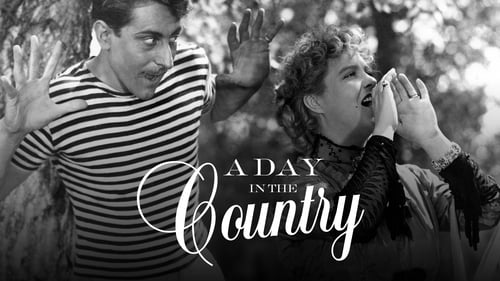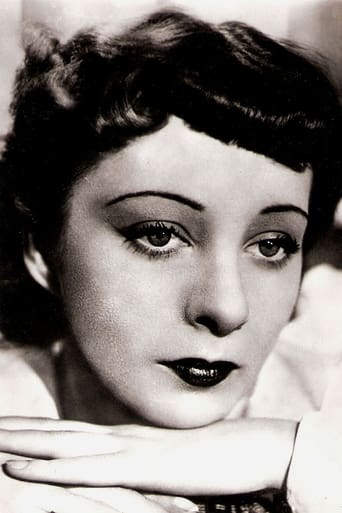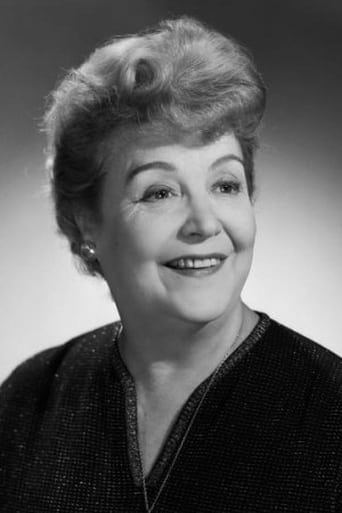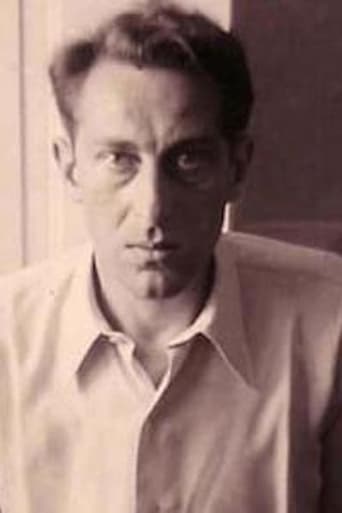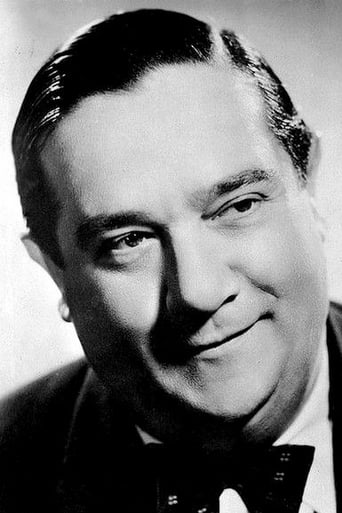Baseshment
I like movies that are aware of what they are selling... without [any] greater aspirations than to make people laugh and that's it.
Deanna
There are moments in this movie where the great movie it could've been peek out... They're fleeting, here, but they're worth savoring, and they happen often enough to make it worth your while.
Zandra
The movie turns out to be a little better than the average. Starting from a romantic formula often seen in the cinema, it ends in the most predictable (and somewhat bland) way.
Marva
It is an exhilarating, distressing, funny and profound film, with one of the more memorable film scores in years,
ironhorse_iv
Adapted from a Guy de Maupassant story, A Day in the Country is a short 40 minutes film is, in fact, just a part of a movie that Director Jean Renoir didn't finish. The opening lines tell you the reasons why. It stars Sylvia Bataille as Henriette Dufour and Georges Darnoux AKA George Saint-Saens as Henri. They meet by chance when Henriette's father (Andre Gabriello), a 19th century Parisian ironmonger, borrows a cart for a trip into the countryside. He's joined by his wife, Juliette (Jane Marken); his daughter; her fiancé, Anatole (Paul Temps); and his mother-in-law. Stopping at a small riverside restaurant, they are charmed by a pair of local young men: Henri and Rodolphe (Jacques Brunius). the mother has a harmless flirtation with a rural "rake," while the daughter has a more serious liaison with a handsome young man. The two locals offer to row the women down the river to see more of the countryside while their men rest and go fishing. Rodolphe, who has been lusting after Henriette since he first saw her, now has her in his boat and is prepared for action. Henri, concerned about what might happen to the girl, makes a deft switch, giving Madame Dufour to his friend and taking Henriette in his own boat. This movie is somewhat chilling. There seems to is suffused with such an overpowering sense of reality that watching it can make one feel a bit like a voyeur and lustful. The way the men plan their way to get to Henriette is predator like, even kneeing down in the grass watching them picnic like lions hunting. Also the way Henri makes his move on Henriette near the river can bother the audience as we're not sure if he rape her, or made love. The way, Henriette looks at him, near the ending shows fear, but we're unsure if it's the fact, she leaving, or what Henri did to her. This is where the film ends: Fourteen years later, the same family vacations at the same spot. The handsome stranger returns, hoping to renew his affair with the daughter; unfortunately, the girl is now married to a dull, insensitive jerk. The two former lovers ponder what might have been. Renoir had planned to film scenes depicting what happened in the years between the two holidays, but he closed down production due to an acute "creative block." For this reason, although the film was shot in 1936, it wasn't released to theaters until ten years later. For its American distribution, Day in the Country was bundled together with two other short European films -- Joifroi and the controversial The Miracle -- as the portmanteau film The Ways of Love. Sadly this movie will be more likely seen in film or art school, then at home. It's a great movie to study art. Many people say that Renoir's films mirror his father's art looking at the impeccable riverbank shots in this masterpiece. This is artistic filmmaking at its least pretentious and most absorbing have never been more moved by anything in the cinema. It is, despite the cliché, a moving poem and painting and does more in its forty minutes dealing with humanity and all its flaws and vulnerabilities than any other work of art. Renoir transformed Maupassant's cynical view of sexuality and the bourgeoisie with his own more generous and affectionate vision of humanity and changed Maupassant's jaundiced view of the countryside into a rapturous ode to nature. Profoundly loving, forgiving, gentle - above all, immediate. You can excitement of the lovely day ahead, feel the warmth and greenness and the flowing river and the beginning of love. Magnifique! Merci pour ce petit bijou
K Bunck
A lot of people make a point of calling attention to the fact that "A day in the country" is an unfinished film, cut short by bad weather conditions and a lack of sufficient funds; I feel that these filming disruptions and hastily put together ending, actually contribute more to the film than whatever was originally planned. Henrietta, her mother, father and fiancé, all head out for a day in the country; when they arrive at their destination Henrietta's father and fiancé go fishing together, while Henrietta and her mother enjoy the company of two men who live in the country. Henrietta, based on dialog between her and the man, seems to truly fall in love with the man she meets. The film, hastily finished, due to the aforementioned reason, is in my opinion a blessing in disguise. While the director took this movie as a chance to show off, the beauty of the French country side, the short length of the film, kept the scenery from overpowering the story line. This plus the abrupt nature of the films end, really served to show, that the main characters pain at not being able to marry the man she loved, was simply indescribable. That true pain such as that could not be faked, so they were not even going to have an actress try to portray it, instead by ending the film when they did, they allow the audience to interpret the ending however they wish. Placing their own thoughts and feelings upon Henrietta and imaging how they would feel if they were in her shoes. All in all the film was not bad, the scenery was lovely, the actors seemed to know just how to act to be in harmony with the scenes used, and while to some the film may seem unfinished I believe the correct choice was made in allowing the film to be published, as is.
MartinHafer
When I see lists of the supposed 'great films', I often wonder some films makes these lists and others do not. Two films that often make such lists and make professional reviewers drool are a couple shorts which I'm not even sure belong on any such list--since they are SHORT films! While good, the films seem to be considered among the greatest works of art as well--and I just don't get it. Both films are French and I have no bias against French films--in fact, French films are probably my favorite of all the international cinema. But, I still can't see why "Zero for Conduct" and "A Day in the Country" are considered such amazing films--especially "Zero for Conduct". Yet, I know that many sophisticated people would immediately assume I'm a Neanderthal for not loving these films! As this review is specifically about " A Day in the Country", I'll confines the rest of my comments just about this particular short. I see that it's currently rated 8.2 and as I said above, makes many 'must-see' lists. While I might agree that it should be on a list of the top 100 shorts, you can't seriously compare it to a full-length in my opinion for many reasons. First, the film seems like a fragment--without the completeness or structure you'd find in a 'normal' film. Second, director Renoir himself intended to make a full-length film but only stopped part-way through the project because of time constraints--there was too much rain and he had to wrap up filming! While I think another film, "Fitzcaraldo" is a bit overrated, at least Werner Hertzog went to hell and back to get this incredible film made--yet Renoir gets a pass when he just calls it a wrap! So is this a bad film? Certainly not! In fact, it's one of the most artistically satisfying shorts I've ever seen. The combination of music, great camera work and restrained acting make this a lovely piece of art. But, with a woefully incomplete story and not much plot, I just can't take the film as serious as some have. Good, yes. Great, no. It's well worth seeing--just don't try to convince me it has achieved greatness or should be compared to traditional films.
Ben Parker
A 40 minute fragment of an unfinished movie which Truffaut describes as a cinematic short story, about a picnic in the country.Renoir movies are always idyllic visually - like beautiful cinematic paintings, but Partie de Campagne is particularly idyllic. For some reason Renoir really wanted us to feel that we were in the country. This is his most visceral movie: he really takes you into the landscape in a way he does not usually do. Usually we merely sit back and admire it - here we are shown some gorgeous images of rain on the stream from the view of a boat on the water. The bottom half of the frame is virtually in the water we're so close to the action.My favourite parts of Renoir movies are when he goes out on location (which he did quite a bit) and shoots wonderful scenes in nature. Here we have forty minutes of pure natural beauty (with a group of characters added for colour). I'm not sure that if Renoir continued with this project it would have retained enough interest over a two hour length - most likely its merely the central episode of a movie. Like Kubrick, Renoir made his movies up from several big, beautiful chunks. This applies most to Grand Illusion, so perhaps this sequence would never have been intended to supply enough dramatic interest for an entire story, but for lovers of Renoir, here are some of the most beautiful things he ever filmed. If you've never seen a Renoir film, the first experience is always the best, and it might be spoiling you if you start with this one, but it would be a beautiful introduction to him.

